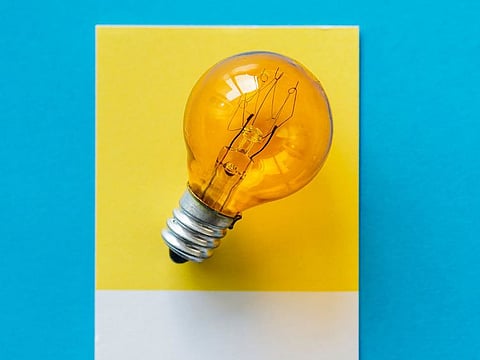10 ways to save on your energy bill this summer in the UAE
Easy fixes to prevent water and electricity bills from going up

Also In This Package
1. How to save on your AC
Make sure your air-conditioning units are well maintained by having a check-up from a reputable maintenance company. It is important to give your AC system the once-over to ensure air filters are clean, refrigerant levels are topped up and electrical connections are working correctly. If they’re not nipped in the bud, everyday issues such as these have the potential to cause bigger, more expensive problems further down the line — especially during the harsh summer months when the system is working overtime.
Make sure your air-conditioning unit is set to “auto” rather than the “on” mode, as this will regulate the room temperature more effectively. Plus, don’t crank it down any lower than 24 degrees celsius. Each degree cooler can represent the equivalent of a nine per cent savings on cooling costs.
2. How to save on your appliances
Electronic devices still draw energy when they are plugged in but not in use so get into the habit of unplugging anything that’s not needed. In addition, fit LED lights instead of traditional bulbs where possible as they use less energy and last longer than conventional bulbs. They also produce less heat.
3. How to save when doing laundry
Around 90 per cent of a washing machine’s energy is used to actually heat the water, so washing your clothes at 30-40C will help keep your electricity bill in check. Also, don’t press “go”’ until you have a full load.
4. How to save on Water
Toilets can account for almost 30 per cent of all indoor water use, so fit a dual flush button to save on wastage. Also, bear in mind that older toilets — those installed before 1994 — tend to use much more water per flush, so installing a newer model can save the typical household up to 21,700 gallons (82,135 litres) of water per year.
It can also help to install aerators on your water taps. This is a clever way to reduce water consumption by forcing air into the water flow, without disrupting water pressure.
Should you take a shower or a bath?
Take a quick shower rather than a bath and you’ll save an average of 20 gallons (76 litres) of water. In addition, fitting a water-efficient shower head will earn you even more green stars. As a quick test, if it takes less than 20 seconds to fill a one-gallon (around 3.78 litre) bucket from the shower head, then it could benefit from being replaced.
5. Switch off seasonally
Switch off the water heater during summer and water cooler during winter, this can save you up to 50 per cent on your water heating and cooling energy consumption. If you need hot water to bathe, switch it on 20 minutes before you shower, so that it’s not on all day.
6. How to save on your cooking costs
On very hot days, you can avoid overheating your home by preparing your meals on the stove instead of using the oven. Even better, add some more cold dishes to your culinary repertoire and cut down on cooking altogether. You can also aim to minimise other everyday activities that generate heat, such as using a dishwasher and using devices such as curling irons or hair dryers.
7. How to use less energy in the kitchen
Whether you are defrosting or making a cake, consider using your microwave oven instead of your main oven whenever possible, as this saves so much more energy.
8. How to keep the air in your home cold
Drawing the curtains in empty rooms to help reduce the heat radiation through your windows will keep your home cooler. Also, apply a sealant or weatherproofing device around all doors and windows to keep the heat out and the chilled air inside. It can help to shade the exterior of your house where possible to reduce heat radiation and cool the air before it reaches the walls and windows of your home. Triangular sunshades are easy to find and install and are affordable, too.
9. How to save on your garden
Water your lawn before 8am or after 6pm in several short sessions rather than one long one as this way the moisture is more easily absorbed. Consider swapping your turf lawn for artificial grass, which is an effective way to cut down on water consumption and avoid the risk of a browning lawn during the summer.
Protect the pool
Cover your swimming pool to reduce water evaporation. An average-sized pool left uncovered can lose as much as 1,000 gallons (3,785 litres) of water per month.
10. How to spend less on electricity
It may be a long way off, but the Dubai government is aiming to have solar panels installed on the roofs of all buildings by 2030. If you’re a villa owner, you can submit an application to the Dubai Electricity and Water Authority to install photovoltaic panels to generate solar power for your personal consumption, which in turn will reduce your energy bills. Each application takes around four weeks for approval.




